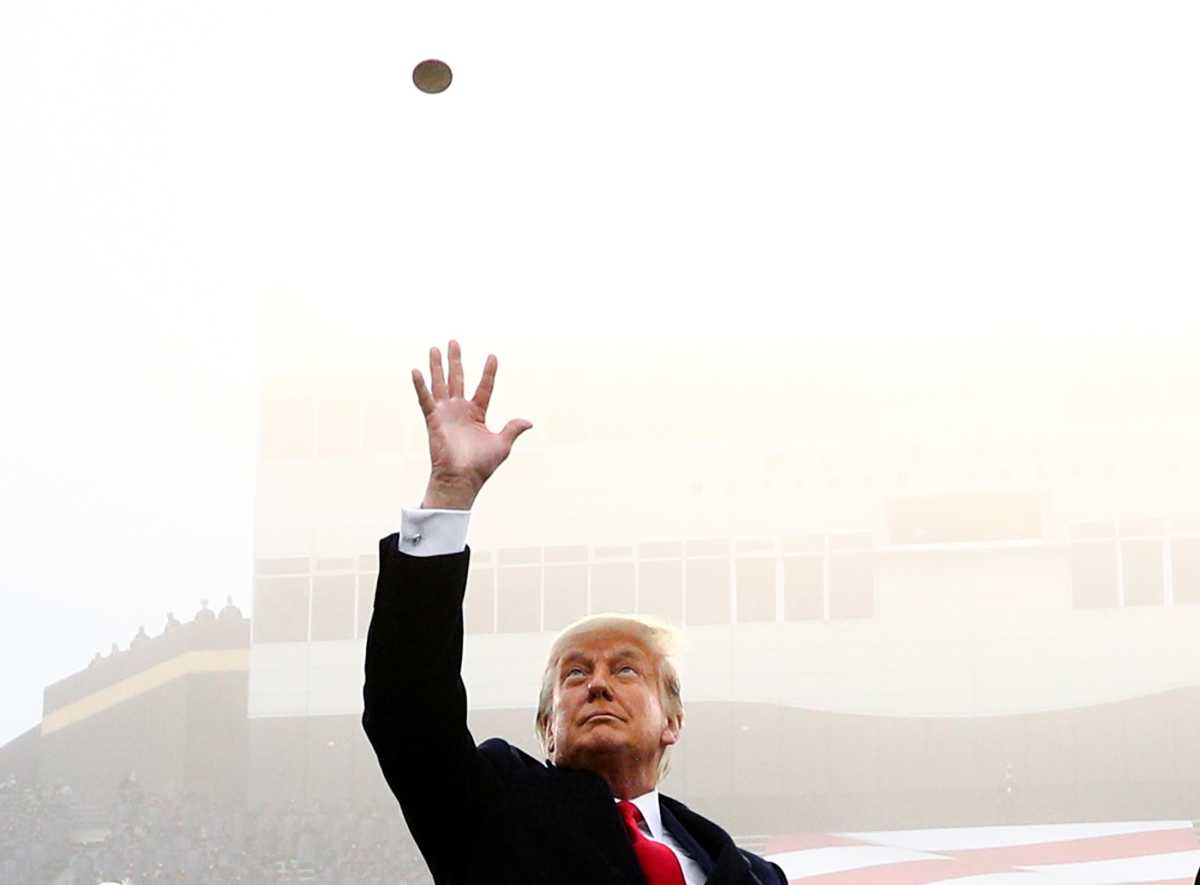By Andy Sullivan and Steve Holland
Americans on Wednesday faced the prospect of a government shutdown during a pandemic as outgoing President Donald Trump, angry at his fellow Republicans in Congress, threatened not to sign a $2.3 trillion government funding and coronavirus aid package.
The package, including $892 billion for relief from the coronavirus crisis, ended months of negotiations between congressional Republicans and Democrats.
It also pays for government operations through September 2021, so if Trump blocks it then large parts of the U.S. government will start to shut down next week for lack of funds.
Trump, in a video posted to social media on Tuesday evening, surprised some of his closest officials by demanding the bill be revised to include $2,000 payments to each American, more than triple the $600 per person included in it.
A source familiar with the situation said aides thought they had talked Trump out of the $2,000 demand last week, only to learn he had not given up when he posted the video. That surprised even his Treasury secretary, Steven Mnuchin, who took part in the talks and backed the $600 figure.
Trump was irked when Senate Majority Leader Mitch McConnell, the top Republican in Congress, last week acknowledged Democrat Joe Biden’s defeat of Trump in their November election contest, another source said. Biden is due to take office on Jan. 20.
Trump did not explicitly say he would veto the measure, apparently holding out hope Congress would modify a complex package that took months to negotiate. On Sunday, the White House said Trump would sign it into law.
In the video, Trump also demanded the bill be stripped of foreign aid, which is included in every annual federal spending bill – and was requested by his own administration last year. He also objected to other government activities funded by the 5,500-page bill, such as fish breeding and funding for the Smithsonian museums.
The Democratic-controlled House of Representatives and the Republican-controlled Senate passed the bill by wide, bipartisan margins, and could return to Washington to override a veto if necessary.
Some congressional Democrats – who had viewed the relief package as too small a response to a crisis that has killed more than 320,000 Americans and thrown millions of people out of work – welcomed Trump’s move.
House Speaker Nancy Pelosi said the House could vote to raise those payments on Thursday if House Republican Leader Kevin McCarthy agreed to do so.
“Mr. President, sign the bill to keep government open! Urge McConnell and McCarthy to agree with the Democratic unanimous consent request for $2,000 direct payments! This can be done by noon on Christmas Eve!” she responded to Trump on Twitter.
McCarthy’s office did not immediately respond to a request for comment.
A veto would put Trump’s fellow Republicans in an awkward position. Many of them opposed the $2,000 payments that Trump is now demanding as too expensive, and they would have to either defy their party’s leader or change their position on those payments.
Current federal funding is due to expire on Monday if Trump does not sign the bill into law. He is scheduled to leave for Florida on Wednesday afternoon for the Christmas holiday.
A funding lapse would furlough millions of federal workers and shut down wide swaths of the U.S. government at a time when it is rushing to distribute two coronavirus vaccines and contend with a massive hack that officials ascribe to Russia, but which Moscow denies.
Trump has also threatened to veto a $740 billion defense-policy bill, which has passed every year since 1961.
Trump dislikes that bill because it would strip the names of generals who served the pro-slavery Confederacy from military bases and because it does not repeal liability protections – unrelated to defense – for social media companies, such as Twitter and Facebook, that Trump considers unfriendly to conservatives like himself.
The House plans to return on Dec. 28 if Trump vetoes the defense-policy bill. That is the same day government funding is due to expire.
In Georgia, where control of the U.S. Senate hangs on a pair of Jan. 5 runoff elections, Democrats pressed incumbent Republican senators David Perdue and Kelly Loeffler to say whether they agreed with Trump that the $600 payments were too low. Neither campaign immediately responded to a request for comment.
Congress is due to adjourn at the end of the year, which means the bill will be automatically vetoed after 10 days even if Trump takes no action, in what is known as a “pocket veto.”
Trump sparked a record 35-day government shutdown two years ago when he rejected a federal spending bill over what he said was insufficient funding for building a U.S.-Mexico border wall.
Reuters





























